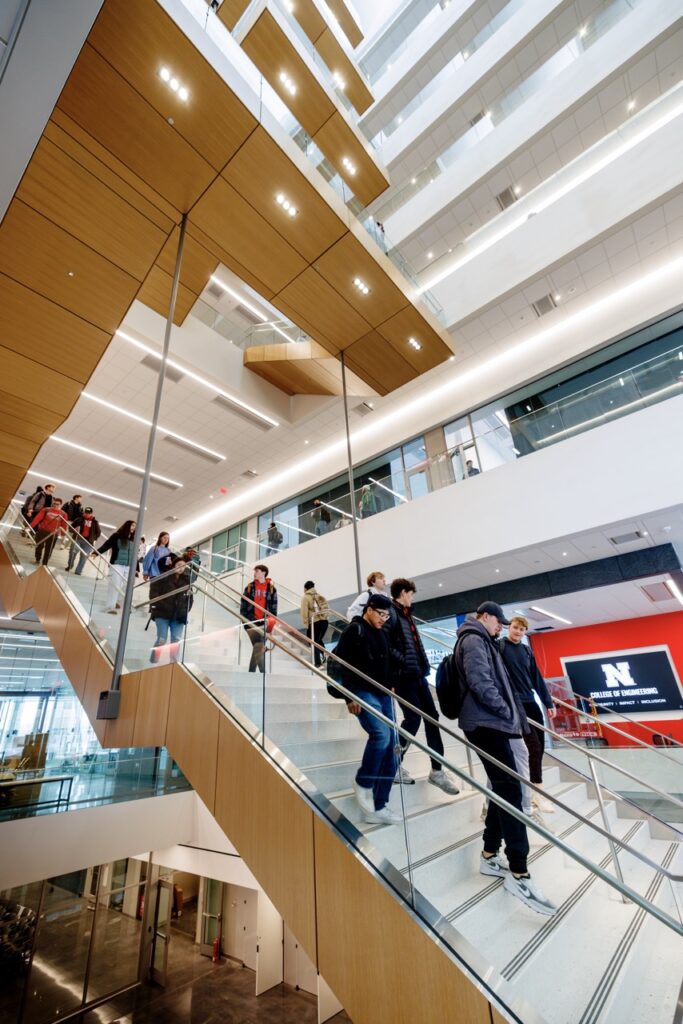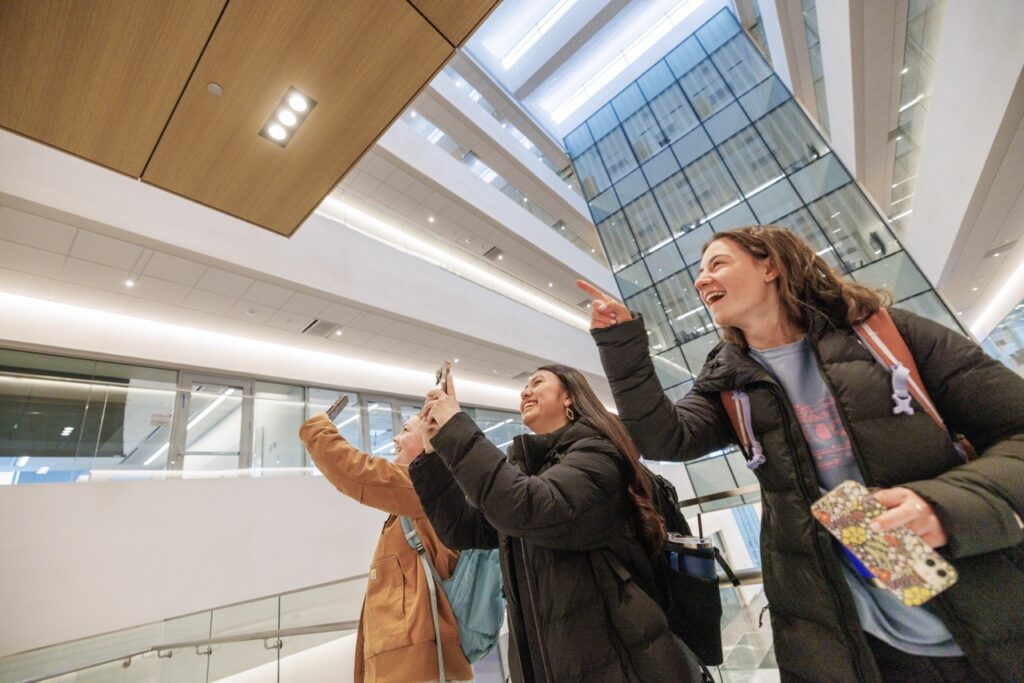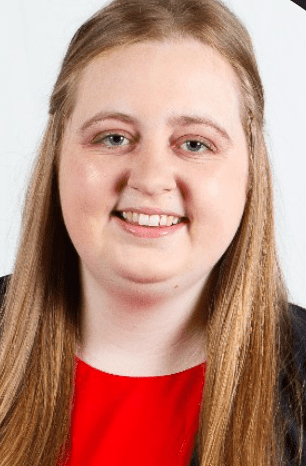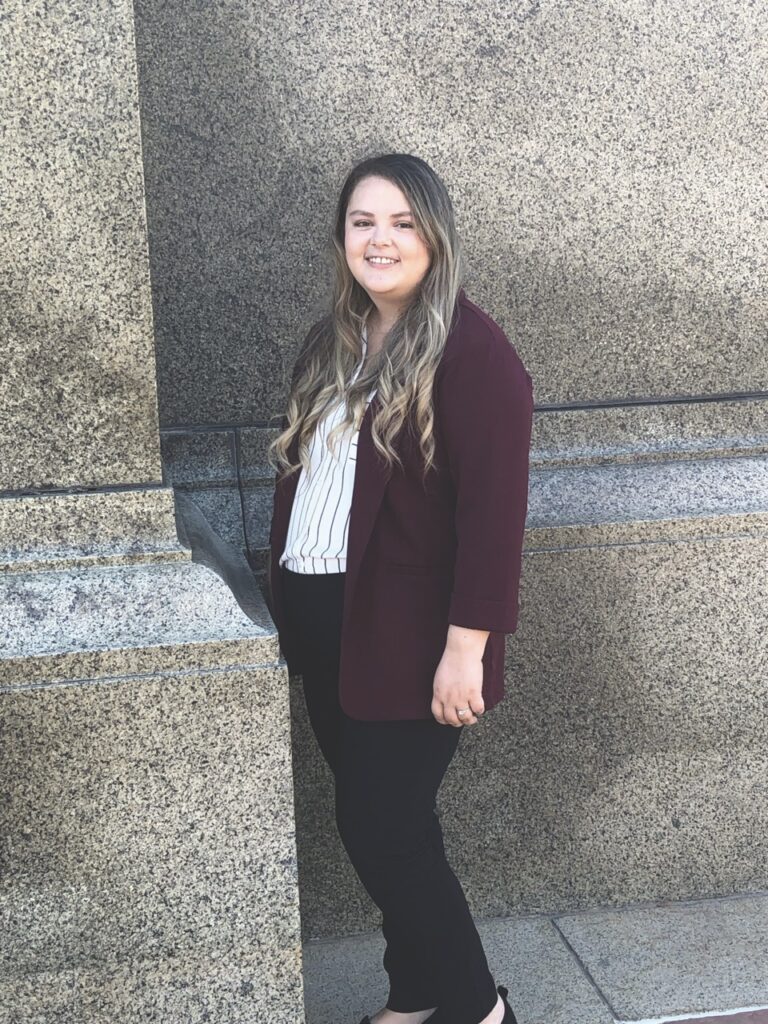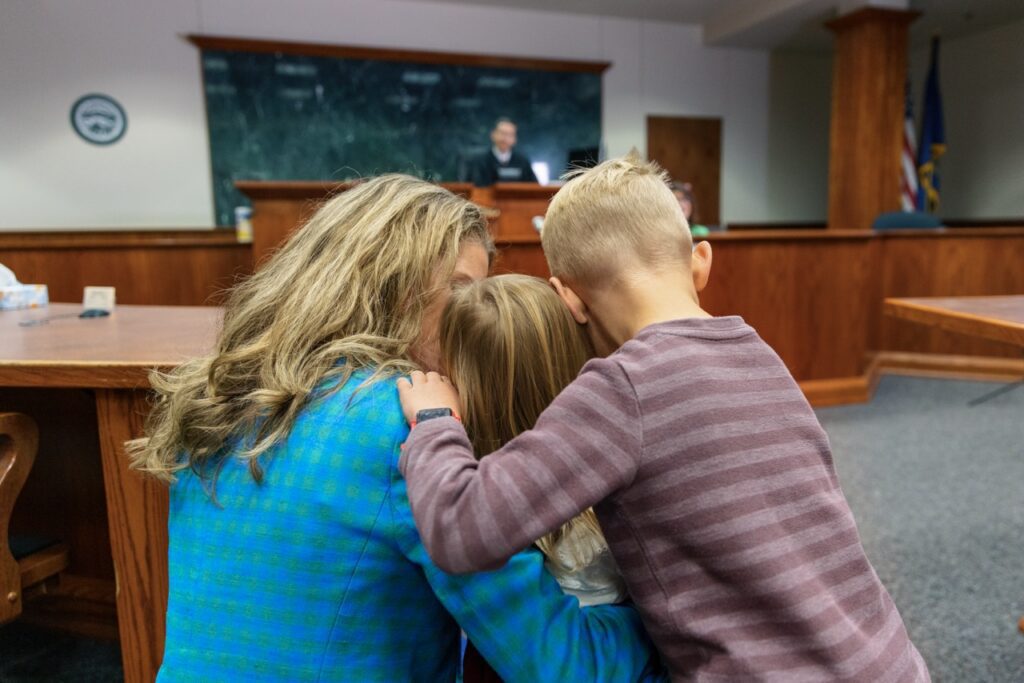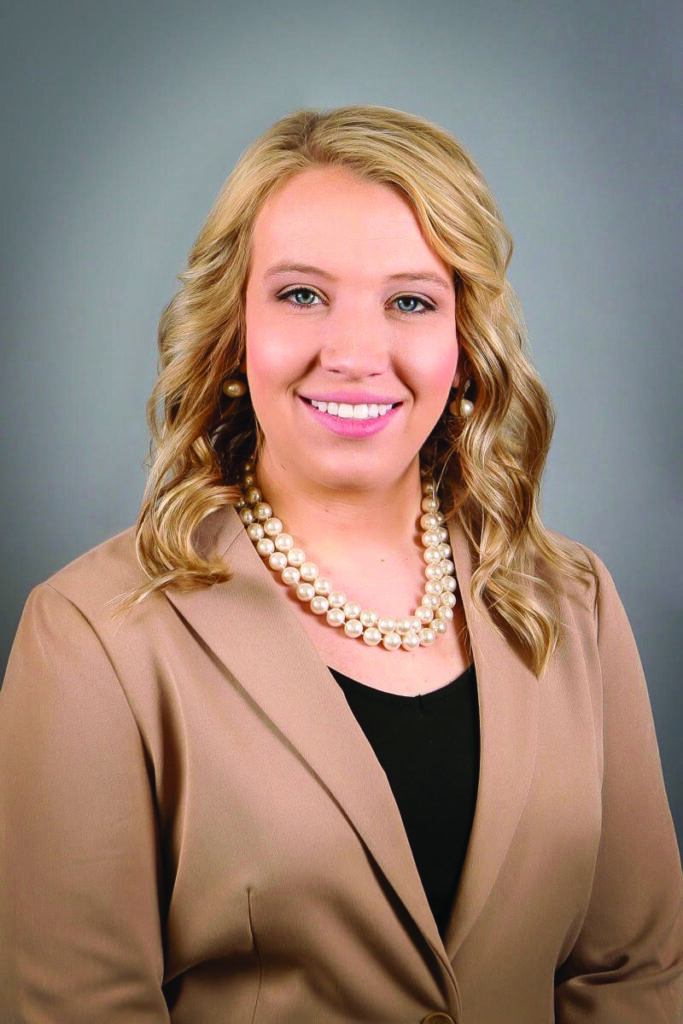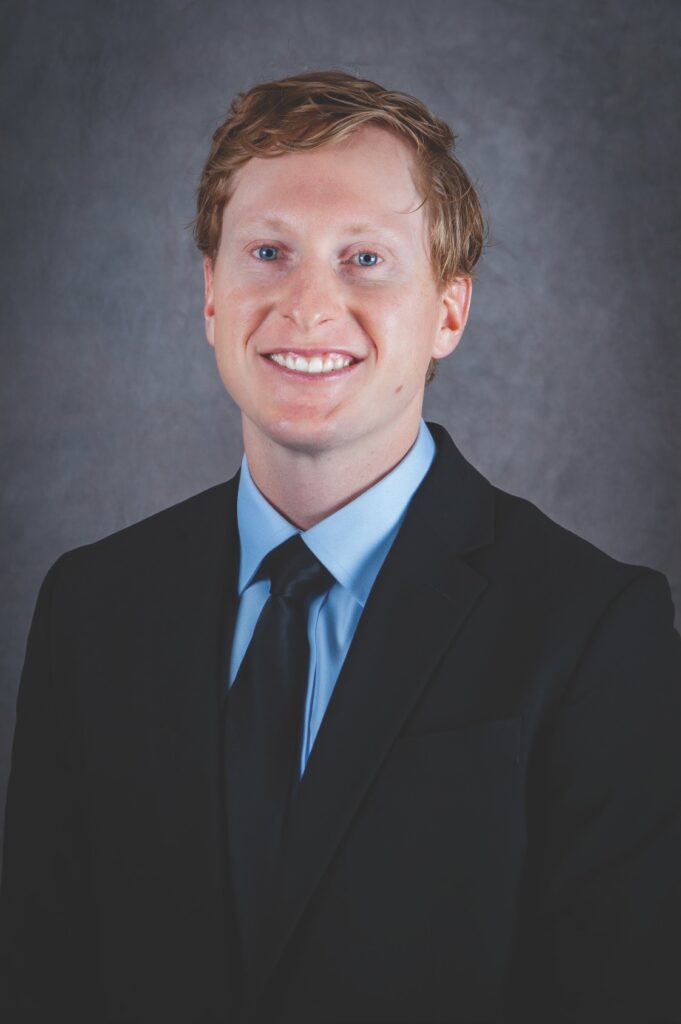Trustee Support Strengthens Morrill Hall Near 100-Year Anniversary
By Robyn Murray
After five months of being closed to the public for an extensive renovation of 97-year-old Morrill Hall, the University of Nebraska State Museum at the University of Nebraska -Lincoln reopened its doors March 15. Museum Director Susan Weller, Ph.D., said attendance has broken records.
“People are just so happy to be back in the museum and enjoying all the refreshed amenities and new exhibits,” Weller said.
One of those new exhibits is the National Geographic Photo Ark, which opened April 19 and will be permanently housed at the museum. The exhibit features the work of world-renowned wildlife photographer, Nebraska native and UNL alum Joel Sartore. The exhibit was made possible by the generosity of University of Nebraska Foundation Trustees Mary and Del Lienemann, Jr., who first envisioned a permanent display honoring Sartore’s work in his hometown.
“My goal in establishing a permanent home for the Photo Ark was to provide a location that was always available for people to come and see the Photo Ark, especially families with children, who will be the future guardians of these endangered and threatened species,” said Del Lienemann, Jr.
“The museum is such a valuable resource and teaching tool for the state of Nebraska, and I hope my matching gift encourages new donors to give what they can to support the museum into the future.”
Anne Hubbard, M.D.
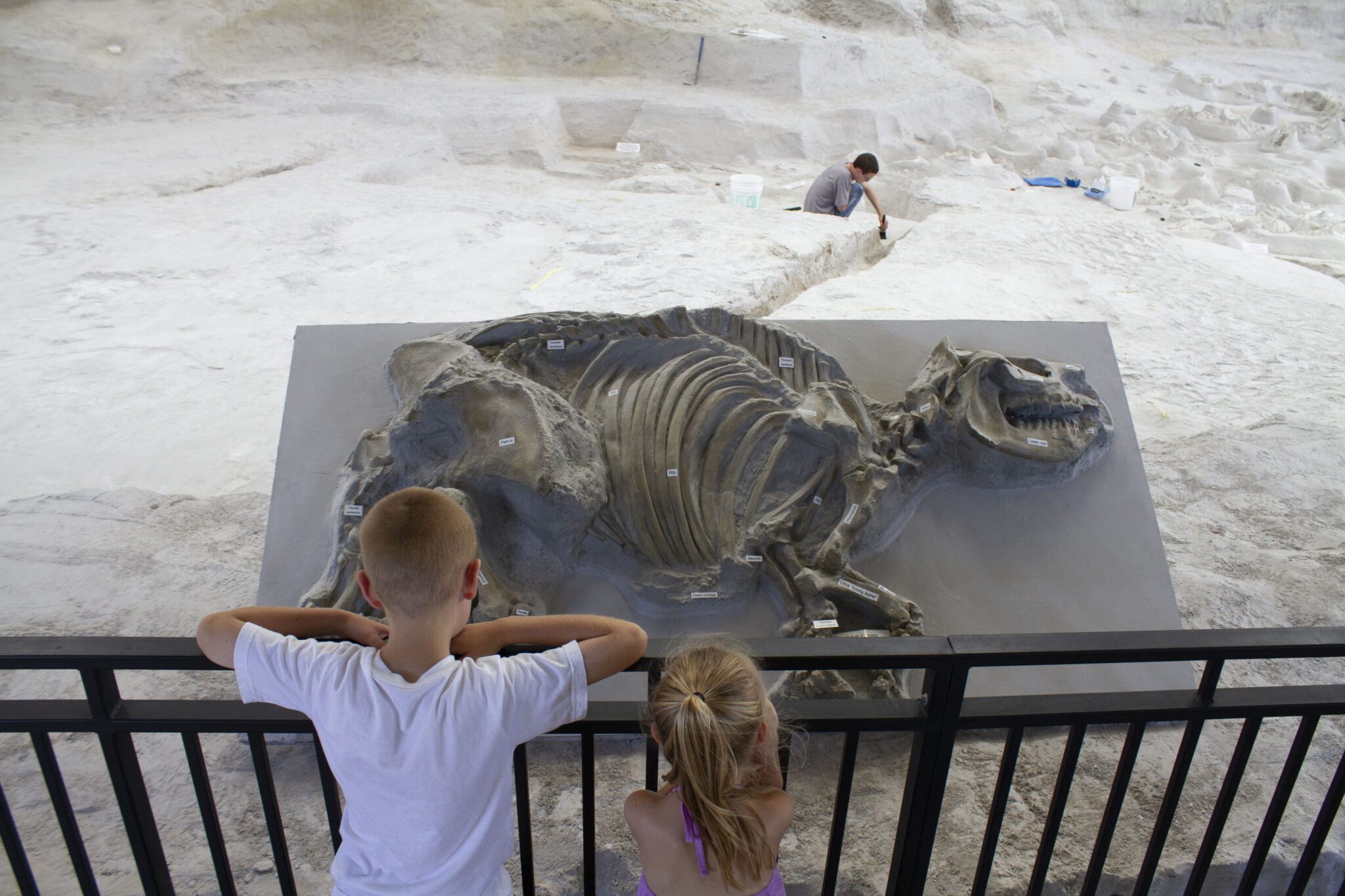

Sartore has traveled the world in his quest to create a photo archive of global biodiversity. His intimate portraits of more than 15,000 species aim to raise awareness of at-risk wildlife and help inspire their protection.
Weller said the exhibit is a perfect fit because the museum helped nurture Sartore’s lifelong passion for wildlife. As a child, Weller said, Sartore would beg his dad to bring him to the museum on weekends. His favorite spot was the Nebraska wildlife diorama, and he would spend his allowance on animal toys in the museum gift shop.
“That’s where he first hatched the idea that he was going to be a zookeeper,” Weller said. “And then he decided, once he came to UNL and began his studies here, that photojournalism was a better career path for him and that documenting wildlife through the camera lens was really his calling.”
Another development at the museum, also made possible by foundation trustees, has provided a long-term investment in one of Nebraska’s unique treasures: Ashfall Fossil Beds State Historical Park. A gift from the Hubbard Family Foundation recognizes UNL Professor Emeritus Michael Voorhies and his wife, Jane, who are credited with discovering the fossil beds in 1971. A National Natural Landmark, Ashfall Fossil Beds are the site of a supervolcanic eruption 12 million years ago that left dozens of perfectly preserved fossil skeletons.
The Hubbard Family Foundation established the Dr. Michael and Jane Voorhies Endowed Curator of Vertebrate Paleontology, a permanent fund that will support the research at Ashfall Fossil Beds in perpetuity. The inaugural recipient of the curatorship is Ashley Poust, Ph.D., who most recently served as a postdoctoral researcher at the San Diego Natural History Museum. In addition to overseeing management of the museum’s extensive fossil collection, Poust will educate and train students and staff to ensure sound science for paleontology exhibits and K-12 programming.
Ted Hubbard, Jr., president of the Hubbard Family Foundation and a University of Nebraska Foundation Trustee, said, “My hope is that, through this investment, future generations of students will have the opportunity to learn about and appreciate Nebraska’s unique scientific story.”
The new exhibit and curatorship, plus the recent renovation of Morrill Hall, build on the 2019 redevelopment of the museum’s fourth floor, an $11.4 million privately funded renovation that added a new exhibit space themed Cherish Nebraska.
Anne Hubbard, M.D., who serves as the Only in Nebraska campaign committee chair for the University of Nebraska State Museum and is also a trustee and foundation board member, was instrumental in the Cherish Nebraska renovation and recently established a $1 million challenge gift to help secure the museum’s future.
“One of my goals as an advocate for the museum is to broaden its base of donors,” Hubbard said. “The museum is such a valuable resource and teaching tool for the state of Nebraska, and I hope my matching gift encourages new donors to give what they can to support the museum into the future.”

